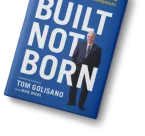Writing is a powerful tool that allows us to express our thoughts, emotions, and ideas creatively and meaningfully. However, as writers, we often face challenges that can hinder our productivity and prevent us from reaching our full potential. These obstacles can be frustrating and demotivating, whether it’s a lack of inspiration, a busy schedule, or self-doubt.
But fear not! In this article, we’ll share ten effective tips to help you boost your writing productivity and overcome these challenges. From developing a routine and breaking down tasks to getting feedback and practicing self-care, these tips will empower you to unleash your inner writer and achieve your writing goals.
So, if you are ready to take your writing to the next level and unlock your full creative potential, let’s get started!
The Crucial Role of Writing Productivity in Achieving Your Writing Goals
Writing productivity is essential for writers who want to achieve their goals and create quality work. Being productive allows writers to make steady progress on their projects, which can help them avoid procrastination, meet deadlines, and achieve success. By boosting their writing productivity, writers can also improve the quality of their work by having more time and energy to focus on the creative process and editing.
Moreover, productivity can lead to increased confidence, motivation, and a sense of accomplishment, which can help writers overcome obstacles and stay committed to their craft.
In short, writing productivity is a critical factor in any writer’s success and is vital for achieving one’s writing goals.
Actionable Tips to Boost Your Writing Productivity Today
Productive writing offers numerous benefits, but the most significant are improved creativity and greater efficiency.
- Firstly, when writers are productive, they can tap into their creative potential and produce more content, leading to more opportunities for inspiration and discovery.
- Secondly, productive writing can also help writers become more efficient and effective. By establishing a routine and sticking to deadlines, writers can develop better time-management skills and increase output.
Tips for boosting writing productivity are as follows;
1. Set Goals and Deadlines
One of the best ways to increase your productivity is to set clear and specific goals for your writing projects. Whether you’re working on a novel, an academic paper, or a blog post, having a well-defined objective will help you focus your efforts and stay motivated. Furthermore, setting deadlines for your goals will create a sense of urgency and accountability, which can help you avoid procrastination and progress toward your objectives.
2. Eliminate Distractions
Distractions can be a significant obstacle to your writing productivity, so it’s essential to identify and eliminate them as much as possible. Common distractions include social media, email notifications, and other online distractions. To minimize distractions, consider turning off your phone or on silent mode, using an app or browser extension to block distracting websites, or finding a quiet and distraction-free place to write.
3. Develop a Routine
Establishing a writing routine can help you develop a habit of writing and increase your productivity over time. A pattern can include:
- Setting aside a specific time and place for writing.
- Using a writing prompt to start your writing session.
- Taking a short break after a set writing time.
By developing a routine, you can train your brain to be more productive and make writing a regular and effortless part of your daily routine.
4. Use Productivity Tools
There are many productivity tools available that can help you streamline your writing process and boost your productivity. For instance, you can use a writing app to stay organized and focused, a dictation software that allows you to write with your voice instead of typing, or a project management tool that helps you keep track of your deadlines and progress.
5. Break Down Your Writing Tasks
Breaking down your writing tasks into smaller, more manageable chunks can make the writing process less daunting and more achievable. For example, if you’re writing a book, you can break it down into chapters, sections, or even paragraphs and set goals and deadlines for each. By focusing on smaller tasks, you can avoid feeling overwhelmed and steadily progress toward your ultimate goal.
6. Use Freewriting
Freewriting is a technique that involves writing continuously without stopping or editing for a set period. This technique can help you generate ideas, overcome writer’s block, and improve your writing flow. To write, put a timer for a specific amount of time, such as ten or twenty minutes, and write whatever comes to mind without worrying about grammar, spelling, or punctuation.
7. Practice Self-Care
Writing can be a demanding and draining task, both physically and emotionally. Therefore, taking care of yourself and practicing self-care is essential to maintain your energy and creativity. This can include taking breaks, getting enough sleep, eating healthy foods, exercising, and engaging in activities that bring you joy and relaxation.
8. Get Feedback
Feedback from other writers or readers can help you improve your writing and increase your productivity. Feedback can provide you with new perspectives, ideas, insights, constructive criticism, and suggestions for improvement. To get feedback, you can join a writing group, share your work with beta readers, or hire a professional editor.
9. Use Visualization Techniques
Visualization techniques can help you overcome mental barriers and improve your writing productivity. For example, you can visualize yourself writing in a focused and productive state, achieving your writing goals, or overcoming writers.
Conclusion
Writing productivity is crucial for achieving success as a writer, and with the right mindset and strategies, anyone can boost their productivity and unleash their full creative potential. The tips we have shared in this article provide a roadmap for increasing productivity, from setting goals and establishing a routine to getting feedback and practicing self-care.
By implementing these tips, you can overcome obstacles, stay motivated, and produce high-quality writing that resonates with your audience. Remember, productivity is not about working harder but working smarter and taking care of yourself. With these tips, you can become a more productive writer and achieve your desired success.
FAQs
How can I overcome writer’s block?
Take short breaks, change your environment, or try freewriting to loosen mental blocks. Focus on progress over perfection to keep the words flowing.
What tools can help improve writing productivity?
Tools like Scrivener, Grammarly, and productivity apps like Trello or Notion can organize your work and streamline the writing process.
How do I create a productive writing schedule?
Set a consistent daily or weekly writing time. Break your sessions into manageable blocks, such as 25-minute sprints with short breaks in between.
What are some ways to avoid distractions while writing?
Turn off notifications, use apps like Focus@Will, and create a dedicated, distraction-free workspace to stay focused on writing.
Why is setting goals important for writing productivity?
Clear goals provide direction and motivation. Breaking larger projects into smaller milestones makes them more manageable and keeps you on track.































